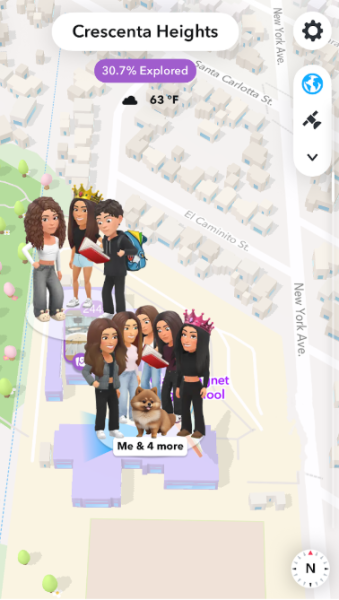Schools fall flat of preparing students for the future
The urgent demand for change in America’s schools
After high school, many students find themselves struggling to keep up with the realities of life and what school hasn’t taught them.
With more schools focusing on techniques for higher passing rates on standardized tests, focus on traditional subjects, like English and mathematics, is higher than ever rather than investing in fundamental curriculum necessary in life. Although many schools offer vast elective choices to study, many students still fall short of the essential lessons needed to succeed in life after high school and support themselves in the real world.
On May 9, one venture capitalist, Ted Dintersmith, publicly spoke about his studies regarding the ineffectiveness of the American education system in preparing young adults for a successful career. His findings were reflected in his recently published book, What School Could Be, which he compiled by visiting each of America’s 50 states and gathering teachers’ innovative approaches to prepare students for real life scenarios.
In his interview with a Milwaukee news journalist, Dintersmith expressed his concern over the flaws in modern education and ineffectual tactics used to test student knowledge. “We impose these obsolete metrics, these measures that really don’t tell us much about the potential of kids…and they really don’t foster the types of skill sets and mindsets that kids are going to need going forward,” Dintersmith said.
Dintersmith’s argument concerning the unpreparedness of students for real fieldwork and life alone is proving to be more crucial than many think. Today, schools implement impractical subjects like calculus or biology on students who do not wish to pursue jobs in that area or who are interested in other pathways. Very few students actually get the possibility to dedicate their focus on the areas needed for their specific interests, usually learning it in only one or two elective courses.
In order to produce effective workers for the future, schools should develop a diverse curriculum for varied pathways, eliminating or decreasing courses that will prove meaningless in a student’s attempt to reach their goal. For example, the schedule of a student aiming to become a graphic designer should not include as many science and math courses as a student wanting to become a biochemical engineer.
However, one of the biggest limitations to this idea are college entrance requirements which more or less require the same from every student regardless of what field they want to enter. With the rising number of occupations, it’s not comprehensible to require the same from a student majoring in ecology and a student majoring in linguistics give or take one or two extra science tests.
Nevertheless, feeble subject choices in regard to career preparation are not the only thing hampering many students from the prospects of a manageable future. High school does not inculcate in students how insurance works, how to manage a checkbook, buy a house, maintain a good credit score or file their own taxes, all of which are essential following life after graduation.
Even after completing courses in economics or health, students are leaving high school with no competence of any basic first aid, inadequate communication skills and no familiarity with competitive negotiation.
Although some skills cannot be fully developed through classes taught at school, many real life scenarios are ignored in classroom settings and, instead, lessons focus on general principles that not only don’t teach anything but also promote students to memorize and recite useless information.
As society shifts, so do new generations of students growing up in the expanding presence of technology, not only depicting the difficulties with our current education system but the rising need for education in principles insignificant before.
With the growing rise of technology, many schools should begin to adopt computer coding lessons to adhere to the massive industry which is already implementing changes in conventional workplaces. Students can benefit from acquiring this skill in the present as well as in the long run when computational thinking and digital literacy will be mandatory.
Furthermore, as travel is becoming more popular among young employees, school’s failure of familiarizing students with the metric system is a critical problem, yet often overlooked and unfortunately, an unknown concept to many Americans. Being such an industrialized country and so influential worldwide, students should be taught to comprehend the temperature outside in degrees Celsius or understand a distance in kilometers since these are international measurements.
In the Gilded Age of the schooling system, it only takes a little research to uncover the realities behind the meaningless subjects taught in school and their effects on society. A growing dilemma, discovered in a recent survey, is the rising number of young adults living with their parents and not pursuing an education (young adults living in parents’ home but enrolled in school were excluded from the analysis). According to a Zillow analysis of American Community Survey data, around 22.5 percent, almost a quarter, of young adults up to age 36 live in their parents’ home. Although motives for each adult may be different, 12 million young adults is enough to call for a change in the school system which doesn’t effectively transform students’ ambitions into reality.
Schools across the nation are failing to provide adequate information necessary for life after high school. This is an often overlooked problem that deserves more insight than previously assumed. Whether it’s adding a social skills class or a real world finance class, the education system would greatly benefit from the existence of these indispensable skills in today’s classrooms.

Hobbies: Reading mystery novels and traveling
Favorite shows: Find me the time to watch shows and I'll tell you
Places you want to travel to: Dubrovnik,...











